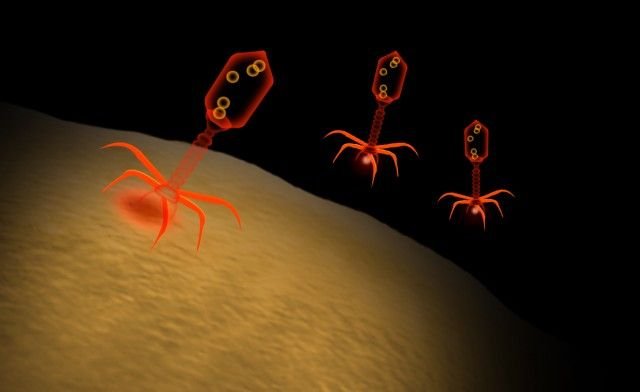
Urgent Public Health Alert: Streptococcal Toxic Shock Syndrome
Streptococcal Toxic Shock Syndrome: Sri Lankan Officials Urge Calm
Amidst growing concerns over the spread of Streptococcal Toxic Shock Syndrome (STSS), commonly known as ‘flesh-eating bacteria,’ Sri Lankan health authorities are urging the public not to panic. The outbreak, which has seen nearly 1,000 reported cases in Japan this year, has sparked alarm among health officials and the public alike. However, Sri Lanka’s Epidemiology Unit Director, Dr. Samitha Ginige, emphasizes that while the disease can be severe, it is neither new nor uncommon.
“It’s important for the public to understand that STSS is a treatable bacterial infection. Although there have been reports of drug-resistant cases leading to fatal outcomes, these instances are rare,” Dr. Ginige reassured.
Streptococcal Toxic Shock Syndrome is caused by certain strains of Streptococcus bacteria and can progress rapidly to a life-threatening condition if not promptly treated. Initial symptoms include fever, chills, muscle aches, nausea, and vomiting, which can escalate within 24 to 48 hours to severe complications such as low blood pressure, organ failure, and rapid heart rate.
The outbreak in Japan has particularly affected Tokyo, where local reports indicate a significant rise in cases compared to previous years. According to the Centers for Disease Control and Prevention (CDC), STSS requires immediate medical attention and treatment with antibiotics to manage the infection and stabilize the patient’s condition. The death rate among those affected is reported to be approximately 30 percent, with adults over 30 years old being the most affected demographic group.
As global health authorities monitor the situation closely, Dr. Ginige affirmed that Sri Lankan health officials will remain vigilant and be prepared to respond to any emerging health threats. “The key message for the public is not to panic but to remain vigilant and seek medical advice promptly if they experience symptoms associated with STSS,” he concluded.
Health authorities in Sri Lanka are taking the situation seriously and are implementing measures to ensure that the public is well-informed and protected. Information campaigns are being launched to educate people about the symptoms of STSS and the importance of early medical intervention. Hospitals and clinics are also being equipped with the necessary resources to handle potential cases, and healthcare professionals are being trained to recognize and treat the condition effectively.
Dr. Ginige highlighted that public awareness and education are crucial in preventing panic and ensuring that people take the necessary precautions. “We need to ensure that the public understands the nature of STSS and how it can be treated. Panic and misinformation can lead to unnecessary fear and anxiety. Our goal is to provide accurate information and ensure that everyone knows what steps to take if they or someone they know shows symptoms of STSS.”
The symptoms of STSS can often resemble those of other, less severe illnesses, making it important for individuals to seek medical attention if they experience any combination of fever, chills, muscle aches, nausea, and vomiting. Early detection and treatment are critical in managing the infection and preventing severe complications.
The healthcare system in Sri Lanka is equipped to handle infectious disease outbreaks, with a robust network of hospitals and clinics across the country. The Epidemiology Unit, in collaboration with other health authorities, continuously monitors the situation and adapts strategies as needed. This proactive approach has been key in managing previous health crises and will be instrumental in addressing any potential spread of STSS.
In addition to public awareness campaigns, Sri Lankan health authorities are also working closely with international health organizations to stay informed about the latest developments and best practices in managing STSS. This collaboration ensures that the country is prepared to respond effectively to any new cases and can implement the most up-to-date treatment protocols.
The current situation in Japan serves as a reminder of the importance of global health surveillance and cooperation. Diseases do not respect borders, and an outbreak in one country can quickly become a concern for others. By staying vigilant and working together, countries can better protect their populations and prevent the spread of infectious diseases.
For now, Sri Lankan health officials are focused on monitoring the situation and providing accurate information to the public. The message remains clear: do not panic, stay informed, and seek medical attention if you experience symptoms of STSS. With the right precautions and prompt treatment, STSS is a manageable condition, and there is no need for undue alarm.
In conclusion, while the spread of Streptococcal Toxic Shock Syndrome in Japan has understandably caused concern, Sri Lankan health officials are taking a proactive and measured approach to ensure public safety. By providing accurate information, equipping healthcare facilities, and working with international partners, Sri Lanka is well-prepared to handle any potential cases of STSS. The key to managing this situation lies in vigilance, education, and prompt medical intervention. The public is urged to remain calm, stay informed, and seek medical advice if needed, confident in the knowledge that their health authorities are ready and equipped to respond to this and any other health threats.




Leave A Comment